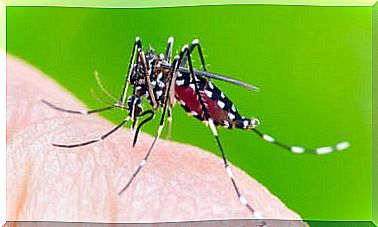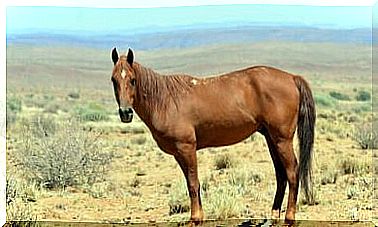Weight Loss In Dogs: What Diseases Are Behind It?

The weight loss in dogs is when he related something normal with the appropriate motifs such as an increased training or modified diet. However, if the weight drops dramatically and apparently spontaneously, then it may be a symptom of a serious illness.
Generally speaking, dog weight loss is considered clinically important if it is above 10% of normal weight. To find out more, there are tables based on race and age. However, one must also note that there are small variations in ideal weight due to genetic factors.
The season or stress are also factors that can influence the weight and physical condition of our fur nose. However, these variations are usually time related and often do not pose a health risk.
How to Rate Weight Loss in Dogs
If the dog is experiencing severe weight loss, the animal should be taken to the veterinarian. But the caregiver can examine his pet beforehand:
- If you run your hand along the animal’s body, you can feel the ribs due to the lack of a layer of fat.
- If you observe the dog from above or from the side, you can see that the waistline is strong.
- If you weigh him, you will find that several pounds are missing if you compare the results with the last weight check.
The veterinarian usually asks questions about appetite, difficulty swallowing, and about the animals’ feces. Sterilization and the frequency with which the dog is given preventive heartworm medicine also play a role.
This is usually followed by a full physical examination of the fur nose. This almost always includes blood, urine and fecal analysis, and in some cases an X-ray.

Possible diseases
Dog weight loss is often linked to various chronic diseases, but only during some stages of those diseases. The most common are:
- Gastric and intestinal diseases. In these cases, weight loss in dogs is associated with vomiting, diarrhea, constipation, and lethargy. These symptoms often cause loss of appetite and, consequently, weight loss.
- Chronic renal failure. The kidneys are impaired, which causes weakness in the animal.
- Megaesophagus or dilated esophagus. Dogs with this condition are often larger breeds. In this condition, the esophagus is swollen or enlarged and cannot effectively convey food.
- Exocrine pancreatic insufficiency (EPI) . If the pancreas does not make the digestive enzymes they need, dogs are not getting the nutrients they need. The animals then not only suffer from extreme weight loss, but are also unusually hungry. The same thing happens with liver disease.
- Diabetes. This disease is quite common in dogs, especially those of advanced age. Heavy weight loss goes along with it. In fact, it’s one of the symptoms that helps diagnose diabetic dogs.

The list of chronic diseases associated with weight loss in dogs is long because the majority of diseases affect the animals’ appetite and activity level. If you notice that a dog has become much thinner for no apparent reason, it is advisable to take him to the vet quickly.









